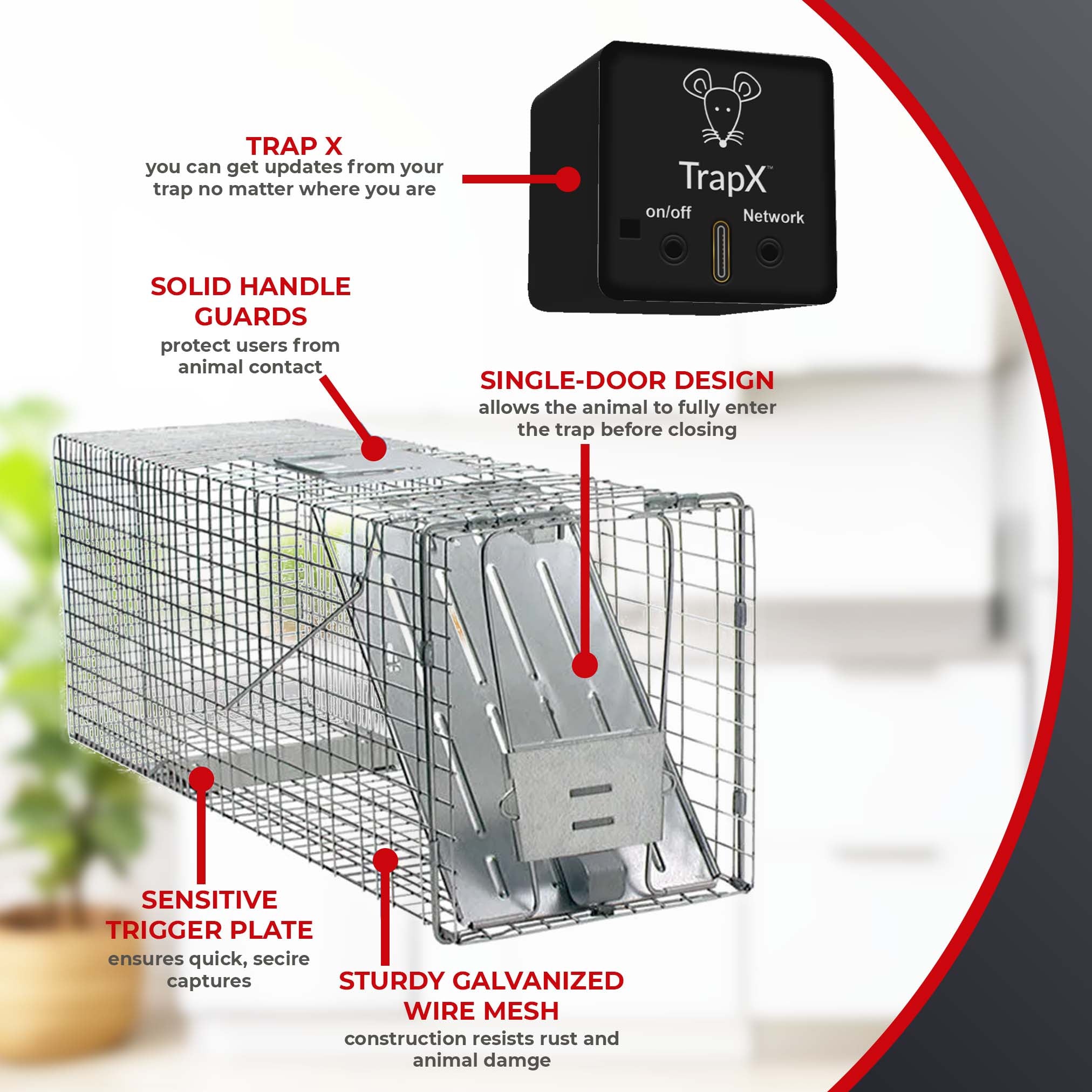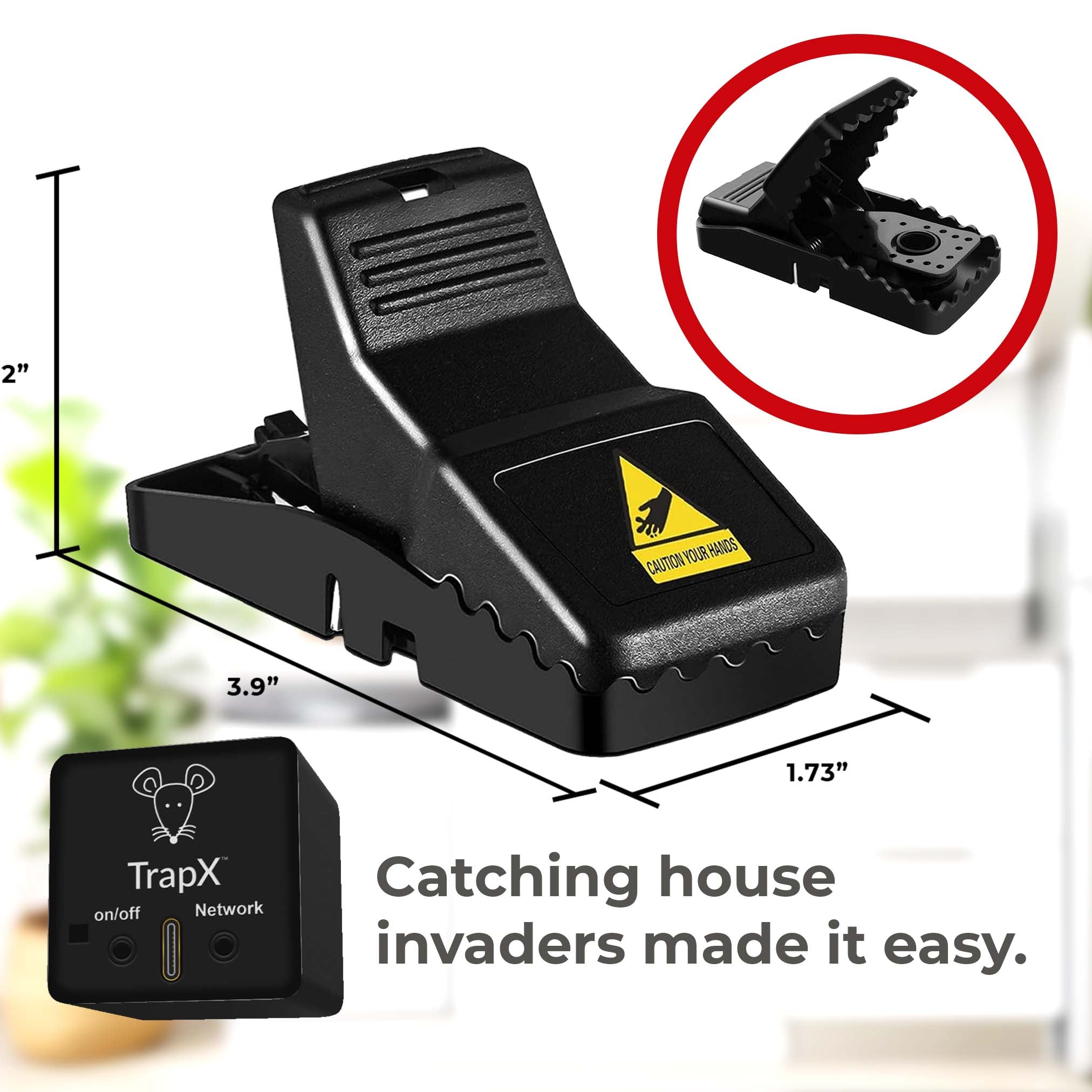Discovering a rodent in your home can be quite unsettling. Whether it's the sound of scratching within the walls, droppings in your pantry, or chewed-up wires, these unwelcome guests need to be identified and dealt with promptly. Identifying the specific type of rodent is the crucial first step in effectively managing the issue.
In this comprehensive guide, we will help you determine which rodent is in your home. We'll cover the most common types of household rodents, their unique characteristics, and the signs they leave behind.

Common Types of Household Rodents
Several types of rodents commonly invade homes. Here are the most prevalent ones:
1. House Mice
House mice are small, gray or brown rodents with large ears and a pointed nose. They usually measure around 2.5 to 4 inches in length, not including their tail.
These rodents are highly adaptable and can live in almost any environment. Signs of a house mouse infestation include:
- Small droppings approximately inch long with pointed ends
- Gnaw marks on furniture, wires, and walls
- Grease marks along walls and edges
- A musky odor
2. Norway Rats
Norway rats, also known as brown rats, have thick, heavy bodies and large, blunt heads. They can grow up to 10 inches in length, not including their tail.
These rats prefer the lower levels of buildings and are often found in basements, crawl spaces, and sewers. Signs of a Norway rat infestation include:
- Large droppings, typically inch long with blunt ends
- Burrows near buildings, gardens, and yards
- Gnaw marks on wood and plastic
- Footprints and tail marks in dusty areas
3. Roof Rats
Roof rats, also known as black rats, have slimmer bodies, pointed noses, large eyes, and long tails. They prefer high places like attics, trees, and roofs for nesting.
Identifying signs of roof rats include:
- Droppings around inch long with pointed ends
- Gnaw marks on electrical wires and cables
- Runways along walls, rafters, and pipes
- Nests made from shredded materials in high places
4. Deer Mice
Deer mice are small, with brown bodies and white undersides. They are common in rural and semi-rural areas. You can identify deer mice by their bi-colored tails, which are dark on top and light on the bottom.
Signs of a deer mouse infestation include:
- Droppings around inch long and rod-shaped
- Mouse nests made from paper, fabric, and insulation
- Gnaw marks
- Scattered food crumbs

Identifying Rodent Droppings
Rodent droppings are one of the most tell-tale signs of an infestation. By closely examining these droppings, you can often identify the type of rodent in your house. Heres a quick guide to different rodent droppings:
- House Mice: Small, about inch long with pointed ends
- Norway Rats: Larger, about inch long with blunt ends
- Roof Rats: Medium-sized, about inch long with pointed ends
- Deer Mice: Small, about inch long and rod-shaped
Always handle droppings with care and use gloves and a mask to prevent potential diseases.

Signs of Rodent Damage
Rodents can cause significant damage to your home. Here are some signs to look out for:
1. Gnaw Marks
Rodents need to gnaw on objects to keep their teeth in check. You may find gnaw marks on furniture, wires, and food packages. The size of the gnaw marks can help determine the type of rodent:
- House Mice: Small gnaw marks
- Norway Rats: Large gnaw marks
- Roof Rats: Medium-sized gnaw marks
- Deer Mice: Small gnaw marks
2. Nesting Materials
Rodents use various materials to create nests, including paper, fabric, and insulation. The location and type of nest can indicate the rodent species:
- House Mice: Nests made from soft materials found in hidden places
- Norway Rats: Nests in burrows and ground-level areas
- Roof Rats: Nests in high locations like attics and roofs
- Deer Mice: Nests in rural areas or near stored items

How to Conduct a Rodent Inspection
Your first step in identifying the type of rodent in your house is to conduct a thorough inspection. Heres a step-by-step guide:
Step 1: Look for Entry Points
Find out where the rodents are entering your home. Look for small holes or gaps in walls, floors, and foundations.
Step 2: Check for Droppings
Examine areas where youve noticed rodent activity for droppings.
Step 3: Inspect for Damage
Look for gnaw marks, nests, and damaged food packages.
Step 4: Set Up Monitoring Devices
Use rodent traps or monitoring devices to catch and identify rodents.
Preventing Future Infestations
Once youve identified and removed the rodents from your home, take steps to prevent future infestations:
Seal Entry Points
Use caulk, steel wool, or other materials to seal gaps and holes.
Keep Food Secure
Store food in airtight containers and clean up crumbs and spills immediately.
Maintain Cleanliness
Keep your home clean and free of debris to reduce hiding places for rodents.
Frequently Asked Questions (FAQ)
What are the most common signs of a rodent infestation?
Common signs include droppings, gnaw marks, nests, and greasy rub marks along walls.
How can I safely clean up rodent droppings?
Wear gloves and a mask, use disinfectant to clean affected areas, and dispose of waste in sealed bags.
What diseases can rodents spread?
Rodents can carry diseases such as Hantavirus, Leptospirosis, and Salmonella. Its important to handle infestations carefully.
By understanding how to tell what rodent is in your house, you can take the appropriate steps to remove them and prevent future infestations. For more information on pest control, visit the CDC's rodent control page.
As an Amazon Associate, I earn from qualifying purchases.
For more insights on pest control, read our comprehensive guides on Setting PIC Mouse Trap, Best Live Trap, and Effective Mice Removal.
